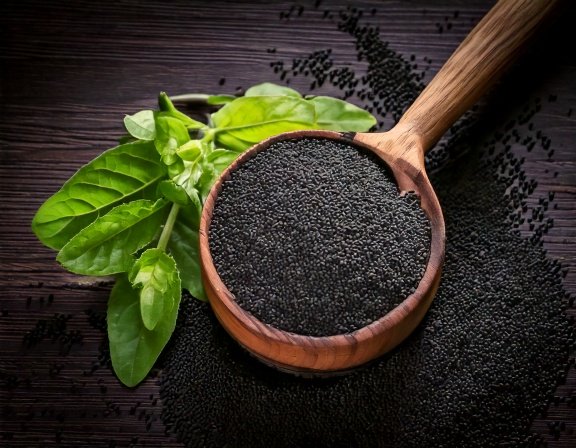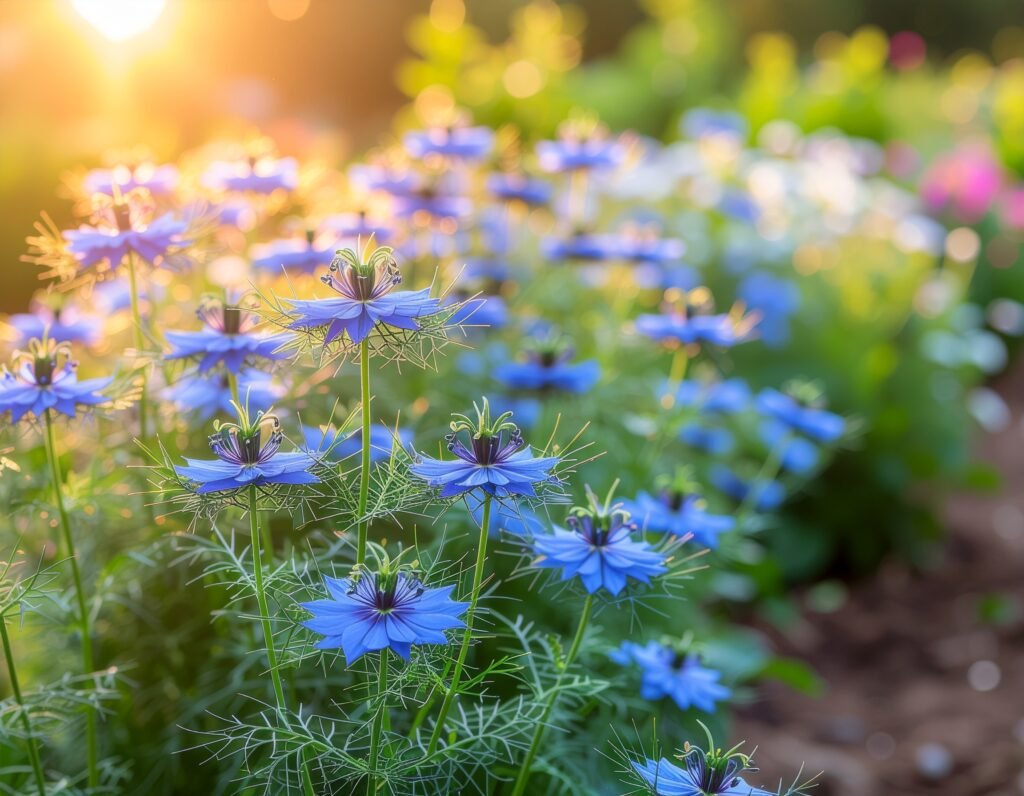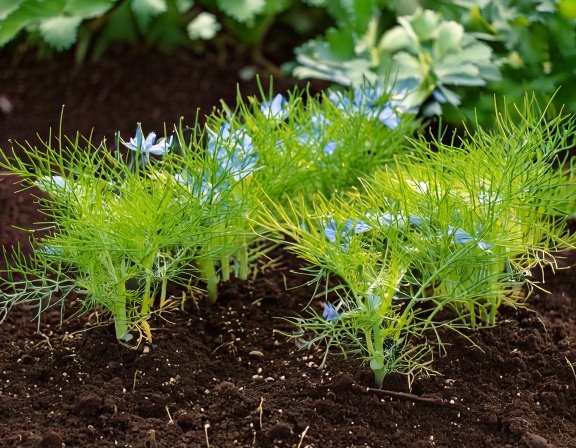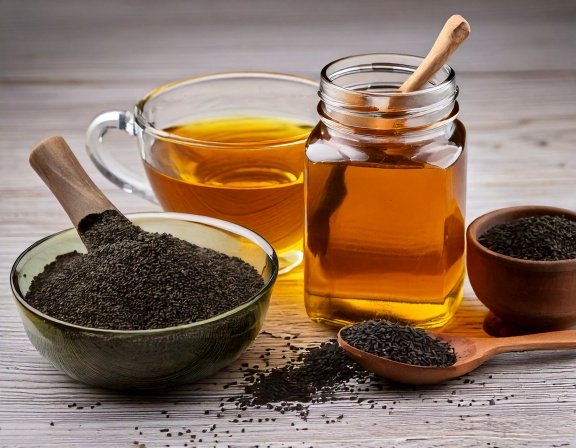Black Seed (Nigella): Step-by-Step Guide to Planting, Harvesting & Making Traditional Immunity Remedies

Immunity Garden Planner (seed-to-tea calendar, 12 plants)
Get our printable Immunity Garden Planner: Growing tips, proven remedies, and classic recipes for year-round health.
Get Your Free Guide
A handful of black seeds holds a world of healing. Black seed (Nigella sativa), also known as “the blessed seed,” has been treasured across cultures for centuries as a natural remedy for immunity, digestion, and whole-body wellness. Easy to grow and rewarding to harvest, Nigella seeds can be turned into traditional tonics, oils, and immune-boosting recipes right from your garden. In this guide, discover how to plant, care for, harvest, and use black seed for timeless health support.


How to Plant Black Seed (Nigella): Step-by-Step
Nigella (Nigella sativa), also known as black cumin or black seed, is both a beautiful garden flower and a valuable medicinal herb. Its delicate blue blooms and lacy foliage make it an attractive addition to any herbal or pollinator garden, while its seeds are treasured for their immune-boosting and anti-inflammatory benefits. Growing Nigella is easy, low-maintenance, and rewarding for both wellness and aesthetics.
Seed Starting
Direct sow Nigella seeds outdoors in early spring or fall, when the soil is cool and workable. Scatter seeds over prepared soil or sow in shallow rows about ⅛ inch deep. Lightly press into the soil—Nigella needs a bit of light to germinate. For a natural, meadow-like effect, broadcast seeds across a bed and let them self-seed in following seasons.
Soil & Site
Nigella thrives in well-drained, neutral to slightly alkaline soil. It prefers full sun and does best in spots that stay moderately dry once plants are established. Avoid overly rich or waterlogged soils, which can lead to fewer blooms and root issues.
Care
Water regularly while seedlings are establishing, then reduce frequency—mature Nigella plants are drought-tolerant and thrive on neglect. Fertilization is rarely needed; too much nitrogen may encourage leafy growth at the expense of flowers and seeds. Nigella is naturally resistant to pests and diseases, making it an easy-care addition to any herbal bed.
Garden Tip
For an extended flowering and seed harvest season, succession sow every 2–3 weeks through early summer. This ensures a continuous wave of blossoms and seed pods for cutting, drying, or saving. Once the seed pods dry and turn brown, you can collect them for use in cooking or medicinal blends.
Quick Tip: Leave a few seed pods on the plants to self-sow naturally—Nigella readily reappears year after year, creating a charming, self-sustaining herbal patch.
How to Plant Black Seed (Nigella)
- Seed Starting: Direct sow Nigella seeds outdoors in early spring or fall, about 1/8 inch deep—in rows or scattered for a natural wildflower effect.
- Soil & Site: Prefers well-drained, neutral to slightly alkaline soil and plenty of full sun.
- Care: Water regularly until seedlings are established; mature plants become drought-tolerant and easy to maintain.
- Resilience: Nigella is low-maintenance and rarely affected by pests or disease.
- Garden Tip: For extended blooms, succession sow every few weeks throughout the growing season—perfect for cutting gardens or pollinator beds.
TruVarin: Varin-Rich Hemp, Saw Palmetto & Green Tea
- Features varin-rich hemp oil, peppermint, saw palmetto, green tea, caffeine
- All-natural actives for scalp support and fuller-looking hair
- Free from harsh chemicals—gentle on scalp and hair roots
Amazing Herbs Premium Black Seed Oil Capsules
High potency, cold-pressed Nigella sativa capsules for digestive health, immune support, and brain function. 1250mg per serving, 60 count. Trusted for quality and results.
Shop Black Seed Capsules
When and How to Harvest Black Seed
Black seed (Nigella sativa) is ready to harvest once its delicate flowers fade and the seed pods mature into small, brown, papery capsules filled with jet-black seeds. Proper timing and gentle handling ensure maximum flavor, potency, and shelf life for culinary and medicinal use.
Harvest Time
Harvest in late summer when the seed pods turn dry, brown, and slightly rattly to the touch. If harvested too early, seeds may not fully develop; too late, and pods may burst, scattering seeds on the ground. Watch the plants closely as they dry to catch the perfect window.
How to Harvest
Snip mature pods individually or cut entire stems once most pods have dried. Place them upside down in a paper bag or hang them in a well-ventilated area to finish drying. Once fully crisp, crack open the pods to release the aromatic black seeds. Spread seeds out on a clean tray or paper towel to air-dry completely for several days before storing.
Storing
Once fully dry, store black seeds in airtight glass jars or tins away from direct sunlight, heat, and moisture. Properly dried seeds retain their flavor and therapeutic potency for up to one year. Label your containers with the harvest date for easy tracking.
Quick Tip: To preserve their beneficial oils, keep seeds whole until ready to use—grind only small amounts as needed for cooking, teas, or herbal tonics.

Traditional Black Seed Remedies & Uses
- Black Seed Tea: Simmer 1 tsp seeds in 2 cups water for 10–15 minutes; strain and sip for digestive and immune support.
- Black Seed Honey Blend: Mix 1 tsp ground black seed with 1 tbsp raw honey; take daily for a classic wellness boost.
- Black Seed Oil: Cold-press seeds for oil (or purchase); use 1/2–1 tsp daily or as a salad drizzle.
- Capsules or Powders: Grind seeds and fill capsules, or add powder to smoothies, yogurt, or baked goods.
- Safety Note: Start with small amounts—black seed is potent! Consult your doctor if pregnant, nursing, or taking medications.
This herbal recipe is shared for educational purposes only, based on traditional use and available sources. It is not medical advice. Please consult your healthcare provider before use, especially if pregnant, nursing, or on medication.

Black seed is called “Habbatul Barakah”—the seed of blessing—in Arabic tradition, and is referenced in prophetic medicine as “a cure for everything but death.”
Kiva Black Seed Oil – Cold-Pressed, 100% Pure Nigella Sativa
For maximum potency: Kiva’s cold-pressed black seed oil is ideal for immune, digestive, and respiratory support. Third-party tested, glass bottle, and a trusted favorite among herbalists.
Shop Black Seed OilReady to Grow Ancient Immunity in Your Garden?
Subscribe to Health Intel Daily for more seed-to-remedy guides, time-tested herbal recipes, and natural immunity tips—delivered to your inbox!
Subscribe